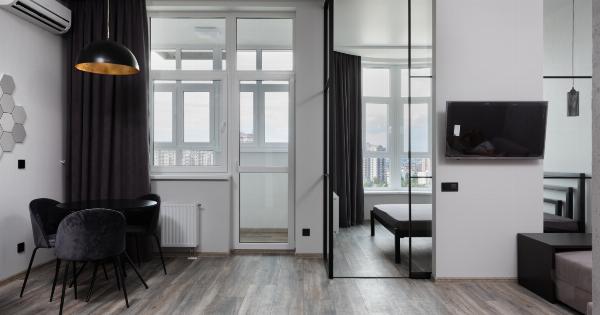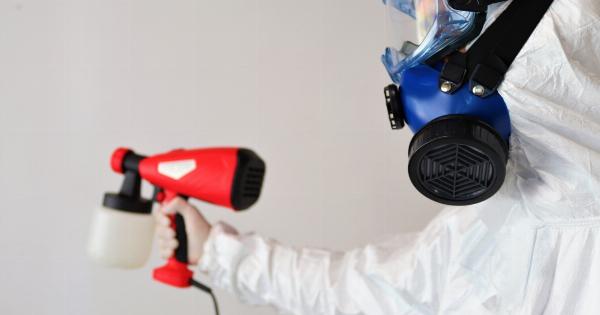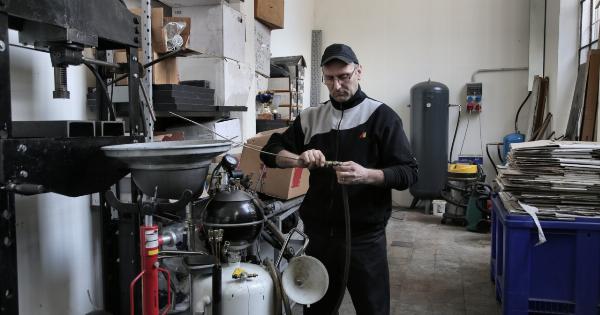When it comes to our health, we often think about exercise, nutrition, and mental well-being. However, we seldom consider the impact of our environment on our overall well-being, particularly when it comes to air quality.
The truth is, the air we breathe can have a significant influence on our health, and this is where air conditioning plays a crucial role.
The Importance of Air Conditioning
Air conditioning is not just about keeping us cool during hot summer months; it also plays a vital role in maintaining optimal air quality indoors.
By regulating temperature and humidity, air conditioning systems create an environment that is not only comfortable but also conducive to good health. When it comes to preventing bucoma, an air-conditioned space can make a substantial difference.
Understanding Bucoma
Bucoma is a condition caused by prolonged exposure to poor air quality. It is typically characterized by symptoms such as headaches, fatigue, dizziness, and respiratory distress.
In severe cases, it can lead to chronic illnesses and even have long-term effects on our overall health. Bucoma is often a result of inhaling pollutants such as dust, mold spores, allergens, and other harmful particles that are commonly found in poorly ventilated spaces.
How Air Conditioning Prevents Bucoma
Air conditioning systems play a crucial role in preventing bucoma by addressing the issues that lead to poor air quality. Here’s how:.
1. Filtration Systems
Modern air conditioning systems are equipped with highly efficient filters that help remove pollutants and allergens from the air.
These filters are designed to trap dust, pet dander, pollen, and other microscopic particles that can lead to respiratory issues and allergies. By effectively filtering the air, air conditioning systems significantly decrease the risk of bucoma.
2. Humidity Control
Excessive humidity is a breeding ground for allergens and molds, which are major contributors to poor air quality.
Air conditioning systems help regulate humidity levels, preventing the formation and growth of molds and reducing overall allergen presence. Maintaining optimal humidity levels not only prevents bucoma but also helps create a more comfortable environment.
3. Ventilation
Air conditioning systems provide proper ventilation by circulating fresh air from outside while removing stale air from inside. This constant air exchange helps flush out pollutants and ensure better air quality indoors.
Proper ventilation is essential for preventing bucoma, especially in enclosed spaces with limited natural airflow.
4. Temperature Control
Excessive heat can exacerbate respiratory issues and discomfort, making it more difficult to breathe. Air conditioning systems regulate the temperature, ensuring a cool and comfortable environment that promotes overall well-being.
By keeping the temperature at a suitable level, air conditioning reduces the risk of respiratory distress and helps prevent bucoma.
5. Reduced Exposure to Outdoor Air Pollutants
Urban environments often have high levels of air pollution due to vehicular emissions, industrial activities, and other factors. By utilizing air conditioning systems, individuals can create a barrier between themselves and outdoor pollutants.
This significantly reduces their exposure to harmful particles and helps prevent the development of bucoma.
Tips for Optimizing Air Conditioning to Prevent Bucoma
While air conditioning systems are highly effective in preventing bucoma, some additional steps can optimize their benefits:.
1. Regular Maintenance
Regular maintenance of air conditioning systems, including filter replacement and cleaning, is important to ensure optimal functionality and air quality.
Neglecting maintenance can compromise the system’s ability to filter air properly and prevent bucoma.
2. Ventilate when Possible
While air conditioning helps maintain good air quality indoors, it is still important to allow some natural airflow whenever possible.
Open windows and doors when outdoor air quality is good to promote better ventilation and further reduce the risk of bucoma.
3. Use High-Quality Air Filters
Choosing high-quality, HEPA (High-Efficiency Particulate Air) filters for air conditioning systems enhances their ability to remove even the smallest particles from the air.
This ensures cleaner, healthier indoor air and provides maximum protection against bucoma.
4. Regular Cleaning
In addition to maintaining the air conditioning system itself, regular cleaning of the surrounding areas can further prevent the accumulation of dust, debris, and potential allergens.
Clean the vents, ducts, and indoor surfaces frequently to minimize the chances of bucoma-inducing pollutants.
5. Seek Professional Guidance
If you have concerns about your indoor air quality, it is advisable to seek professional guidance.
An expert can assess your air conditioning system and provide recommendations specific to your circumstances, ensuring your environment remains bucoma-free.
Conclusion
Air conditioning systems not only provide comfort during hot weather but also play a crucial role in preventing bucoma.
By addressing factors that contribute to poor air quality, such as pollutants, humidity, and ventilation, air conditioning systems significantly reduce the risk of bucoma and maintain a healthier indoor environment. To optimize their benefits, proper maintenance, ventilation, and using high-quality filters are essential. By prioritizing air quality alongside our overall health, we can ensure a better quality of life for ourselves and our loved ones.




























